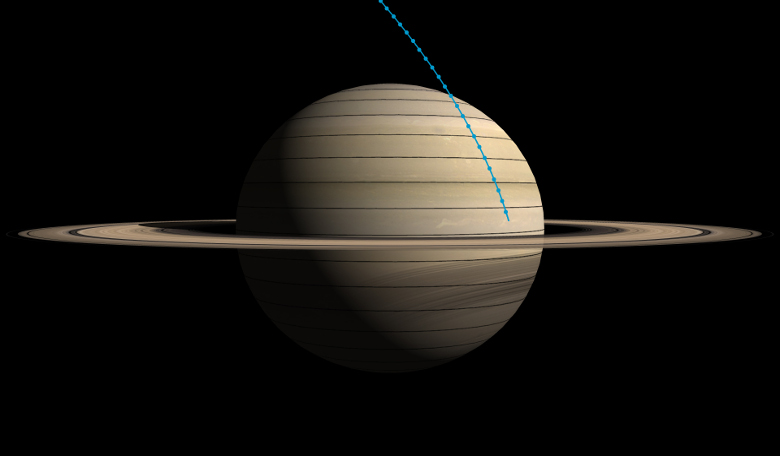1.4 billion kilometres away, a remarkable hunk of machinery whose sole purpose was to give us a greater understanding of Saturn and its moons, will end its mission by plummeting into the very object it was sent to study. Today, we say farewell to Cassini…
Launched 20 years ago, Cassini has been a seemingly ever-present formidable craft that has changed our understanding of not only the second biggest planet in the Solar System, but also its perplexing and enigmatic moons; most notable Titan. Cassini’s contribution to our knowledge of the inner and outer-workings of these planetary bodies is countless (here is just one example), but today, that will all end.
For the last five months, Cassini has been completing its Grand Finale mission; a series of 22 orbits that each pass between Saturn and its spectacular rings. This last fling around the planet has given scientists an unparalleled insight into the rings from a position closer than any before.
Cassini is nothing, if not a trooper. After its primary four year mission ended, the craft’s tour was extended twice. It then began a seven-year mission extension in to observe seasonal changes on Saturn and Titan, while completing many flybys of Saturn’s moons.
Now, its final encounter with the ringed beauty, will be its demise. Very shortly Cassini is due to dramatically plunge into Saturn’s atmosphere to burn up and disintegrate like a meteor, all the while ensuring every last scrap of information can be passed on, as the spacecraft's antenna will keep pointing towards Earth for as long as its small thrusters will allow.
To watch this most melancholy of events, starting at 7 am EDT, NASA will be streaming live shots from inside the Jet Propulsion Laboratory mission control as Cassini embarks on its final, final mission, leaving behind an enviable legacy of information that scientists will still be studying in years to come..











